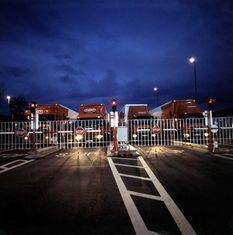
The Freight Transport Association (FTA) has said that its warnings to the Chancellor last month of the volatility of the oil market appear to be well justified.
FTA asked the Chancellor not to impose a 1.28p per litre increase on diesel duty whilst crude oil prices remained high. On Thursday, IPE Brent for November delivery climbed to $30.14 per barrel, its highest price for more than a month.
The latest price rises are the result of concern over the low level of heating oil stocks in the US. However, the consequence is for UK industry to be subjected to a rise in its £8.4 billion fuel bill.
FTA chief economist Simon Chapman said: "The oil market is behaving precisely as we in the UK transport industry feared. The Chancellor's statement, last April, that he would not increase fuel duty by £600 million per year whilst oil prices were so vulnerable was welcome and sensible. But his reversal of this decision from October 1, at a time when oil prices are still so sensitive, is clearly damaging for UK industry - an own goal in the face of international competition from Europe and the rest of the world.”
FTA said that UK diesel duty, at 47p per litre, is by far the highest in Europe. A maximum weight lorry operating in the UK pays around £25,000 per year in fuel duty. Chapman said, 'The Chancellor has the legislative power to reduce fuel duty as quickly as he raised it. He must carefully monitor oil prices and their damaging impact on UK industry and not hesitate to respond if prices continue to remain at this level.'
FTA believes that the increasing control over international oil prices exerted by OPEC means that the prospects for reductions in crude prices are more limited than in the past. However, Chancellor Brown does have the power to vary the largest element of fuel prices, namely UK duty levels, which constitutes over two-thirds of the price.



